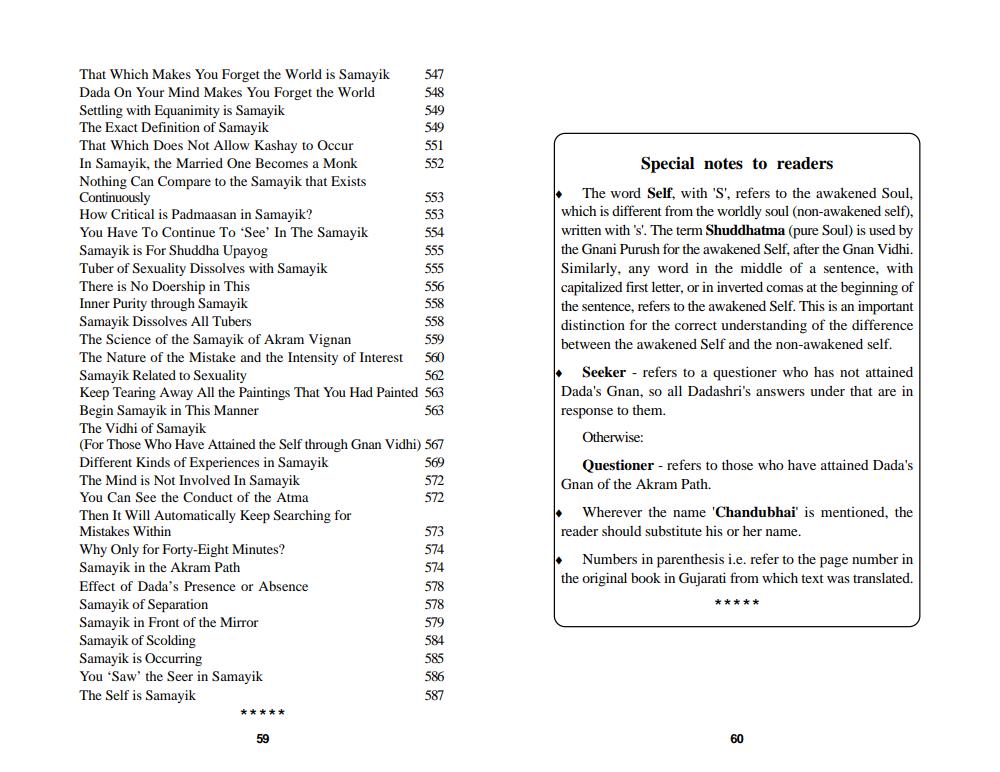________________
That Which Makes You Forget the World is Samayik Dada On Your Mind Makes You Forget the World Settling with Equanimity is Samayik The Exact Definition of Samayik That Which Does Not Allow Kashay to Occur In Samayik, the Married One Becomes a Monk Nothing Can Compare to the Samayik that Exists Continuously How Critical is Padmaasan in Samayik? You Have To Continue To See In The Samayik Samayik is For Shuddha Upayog Tuber of Sexuality Dissolves with Samayik There is No Doership in This Inner Purity through Samayik Samayik Dissolves All Tubers The Science of the Samayik of Akram Vignan The Nature of the Mistake and the Intensity of Interest Samayik Related to Sexuality Keep Tearing Away All the Paintings That You Had Painted 563 Begin Samayik in This Manner The Vidhi of Samayik (For Those Who Have Attained the Self through Gnan Vidhi) 567 Different kinds of Experiences in Samayik The Mind is Not Involved in Samayik You Can See the Conduct of the Atma Then It Will Automatically Keep Searching for Mistakes Within Why Only for Forty-Eight Minutes? Samayik in the Akram Path Effect of Dada's Presence or Absence Samayik of Separation Samayik in Front of the Mirror Samayik of Scolding Samayik is Occurring You 'Saw' the Seer in Samayik The Self is Samayik
Special notes to readers The word Self, with 'S', refers to the awakened Soul, which is different from the worldly soul (non-awakened self), written with 's'. The term Shuddhatma (pure Soul) is used by the Gnani Purush for the awakened Self, after the Gnan Vidhi Similarly, any word in the middle of a sentence, with capitalized first letter, or in inverted comas at the beginning of the sentence, refers to the awakened Self. This is an important distinction for the correct understanding of the difference between the awakened Self and the non-awakened self.
Seeker - refers to a questioner who has not attained Dada's Gnan, so all Dadashri's answers under that are in response to them.
Otherwise:
Questioner - refers to those who have attained Dada's Gnan of the Akram Path.
562
563
Wherever the name 'Chandubhai' is mentioned, the reader should substitute his or her name.
Numbers in parenthesis i.e. refer to the page number in the original book in Gujarati from which text was translated.




